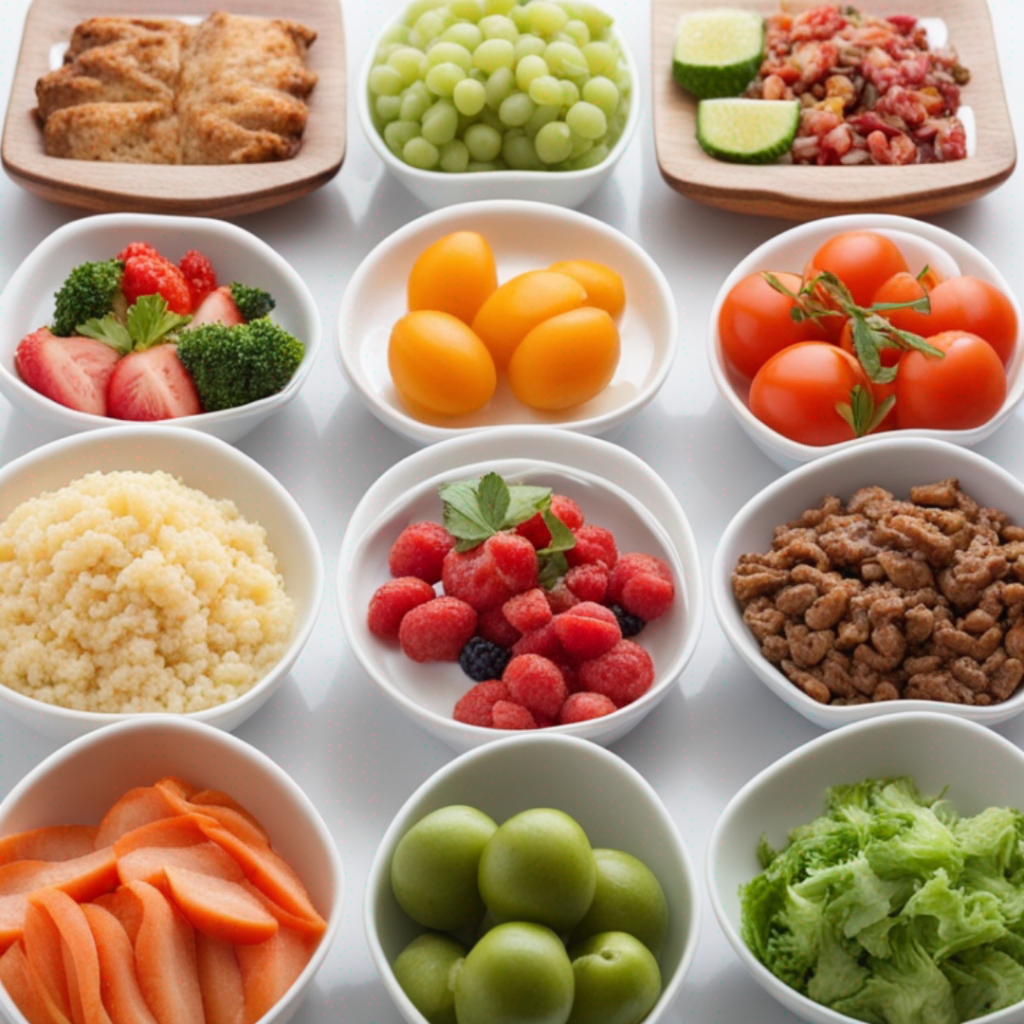When it comes to optimizing your workouts, nutrition plays a vital role in providing the energy, endurance, and recovery necessary to achieve your fitness goals. Proper fueling before and after exercise can enhance your performance, aid in muscle repair, and support overall well-being. In this blog, we will explore some essential nutrition tips for pre- and post-workout fuel that will help you get the most out of your exercise routine.

Pre-Workout Fuel
1.Hydrate adequately
Begin your workout well-hydrated by consuming water or a sports drink at least 1-2 hours before exercising. Staying hydrated helps maintain optimal body temperature, supports joint lubrication, and aids in the delivery of nutrients to your muscles.
2.Balanced macronutrient intake
Consume a meal or snack that includes carbohydrates, proteins, and healthy fats before your workout. Carbohydrates provide readily available energy, proteins support muscle repair and growth, while healthy fats help with satiety and sustained energy. Examples of pre-workout meals or snacks include a banana with nut butter, a Greek yogurt parfait with fruits and granola, or a small chicken and vegetable stir-fry with brown rice.
3.Timing is key
Allow yourself enough time to digest your pre-workout meal or snack. Aim to eat a smaller snack 30 minutes to an hour before exercising, or a larger meal 2-3 hours beforehand. Experiment with timing to find what works best for your body, as some individuals may require more time to digest than others.
4.Avoid high-fiber and fatty foods
While fiber and healthy fats are essential components of a balanced diet, consuming large amounts of these foods just before a workout may cause digestive discomfort. Opt for easily digestible carbohydrates and lean proteins instead.
Post-Workout Fuel
1.Replenish glycogen stores:
After a workout, it’s crucial to replenish your glycogen stores, which are depleted during exercise. Consume a combination of carbohydrates and proteins within 30-60 minutes post-workout. This can be achieved through a protein shake, a turkey or chicken wrap with whole-grain bread, or a smoothie made with fruits and Greek yogurt.
2.Protein for muscle repair
Including a quality source of protein in your post-workout meal or snack is essential for muscle repair and growth. Good sources include lean meats, poultry, fish, eggs, dairy products, legumes, and plant-based proteins like tofu or tempeh.
3.Don’t forget about hydration
Rehydrate your body by drinking water or a sports drink after your workout. This helps restore fluid balance and aids in the recovery process.
4.Antioxidant-rich foods
Exercise generates oxidative stress in the body, and consuming foods rich in antioxidants can help combat this. Include colorful fruits and vegetables like berries, leafy greens, citrus fruits, and bell peppers in your post-workout meal or snack to support recovery.
General Tips
1.Listen to your body
Everyone’s nutritional needs vary, so pay attention to how your body responds to different types and amounts of food before and after workouts. Experiment with various options and adjust accordingly based on your energy levels, digestion, and overall well-being.
2.Stay consistent
Consistency is key when it comes to nutrition and exercise. Develop a routine that works for you and make it a habit to fuel your body properly before and after every workout.
3.Seek professional guidance
If you have specific dietary requirements, health concerns, or performance goals, consider consulting a registered dietitian or sports nutritionist who can provide personalized advice tailored to your needs.
Remember, hydration is crucial both before and after exercise. Adequate water intake helps maintain optimal body temperature, supports joint function, and facilitates nutrient delivery to your muscles. Make it a habit to drink water consistently throughout the day, and prioritize hydrating before, during, and after your workouts.
Balanced macronutrient intake is another key aspect of pre- and post-workout nutrition. Prioritize consuming carbohydrates, proteins, and healthy fats to provide energy, support muscle repair, and promote satiety. While carbohydrates are essential for fueling your workouts, proteins aid in muscle recovery and growth. Healthy fats, such as those found in nuts, seeds, avocados, and olive oil, provide sustained energy and contribute to overall well-being.
Timing your pre-workout meal or snack is essential. Allow yourself enough time to digest your food, ensuring that you feel comfortable and energized for your workout. Experiment with different timing options to find what works best for your body and exercise routine.
After your workout, focus on replenishing glycogen stores and facilitating muscle repair. Consuming a combination of carbohydrates and proteins within 30-60 minutes post-exercise is recommended. This helps kickstart the recovery process and prepares your body for the next workout. Additionally, incorporating antioxidant-rich foods into your post-workout meal or snack can aid in reducing oxidative stress and promoting overall recovery.
It’s important to listen to your body and adjust your nutrition plan accordingly. Pay attention to how different foods make you feel and perform. Everyone’s nutritional needs are unique, so it’s essential to find what works best for you through trial and error.
Consistency is key. Make pre- and post-workout nutrition a consistent part of your exercise routine. By fueling your body adequately every time you work out, you provide it with the necessary resources to perform at its best and recover effectively.
If you have specific dietary requirements, health concerns, or performance goals, it’s advisable to seek professional guidance. Consulting a registered dietitian or sports nutritionist can provide personalized recommendations tailored to your individual needs.
In conclusion, optimizing your pre- and post-workout nutrition is crucial for maximizing performance, supporting recovery, and achieving your fitness goals. By incorporating the nutrition tips mentioned in this blog, you can enhance your workouts and take your fitness journey to new heights. Remember, nourish your body with the right fuel, hydrate adequately, and listen to what your body needs to perform at its best.
